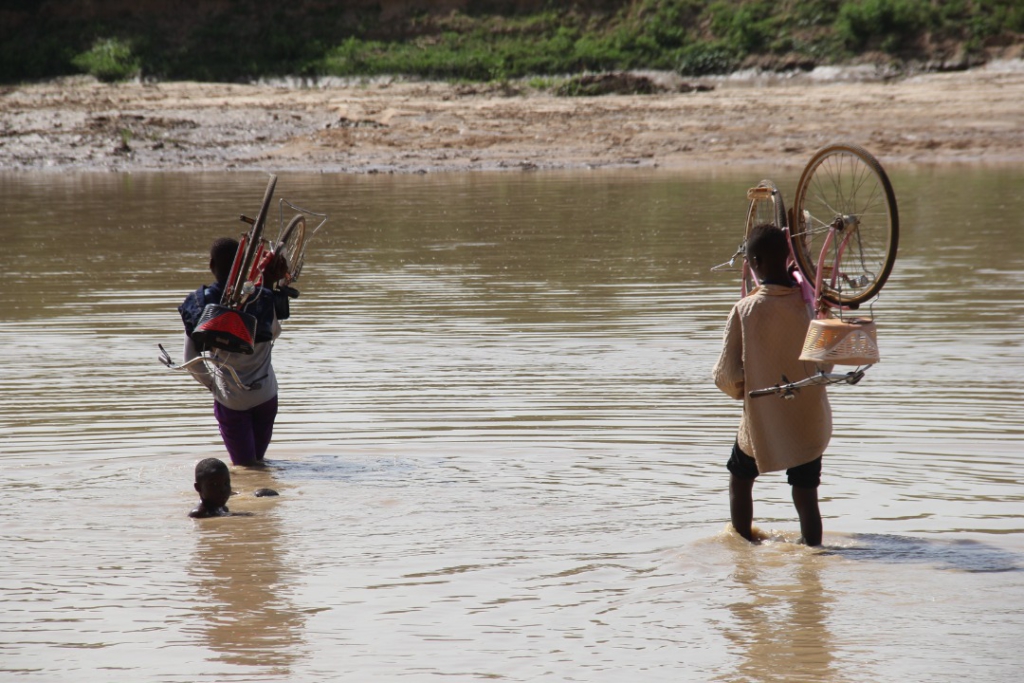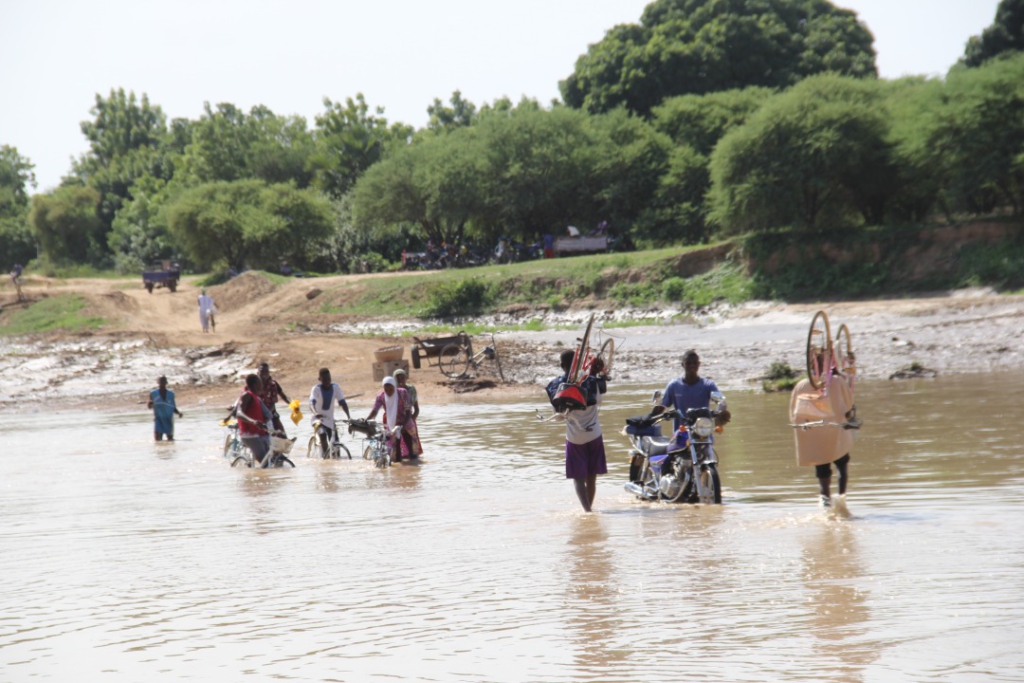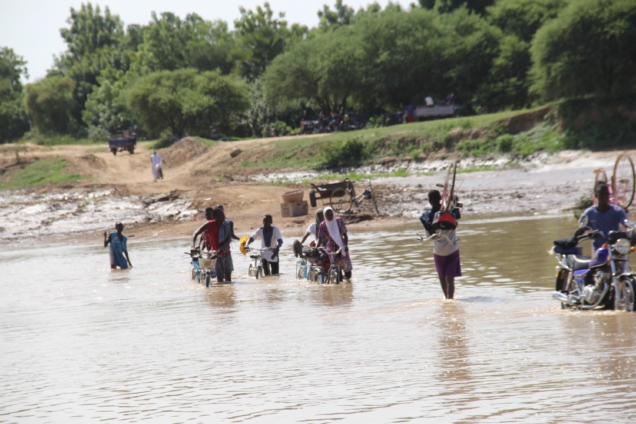The world's wealthiest countries, such as Finland, Iceland, the Netherlands, and Norway, provide healthier conditions for children within their borders while contributing disproportionately to global environmental degradation, UNICEF new report has said.
According to the latest Report Card published by UNICEF Office of Research - Innocenti, these countries are creating unhealthy, dangerous and noxious conditions for children across the world.
Innocenti Report Card 17: Places and Spaces evaluates the performance of 39 countries in the Organization for Economic Co-operation and Development (OECD) and European Union (EU) in providing healthy environments for children.

The report includes indicators such as toxic air, pesticides, damp, and lead exposure; access to light, green spaces, safe roads; and countries' contributions to the climate catastrophe, resource consumption, and e-waste dumping.
According to the report, if everyone in the globe consumed resources at the same rate as those in the OECD and EU countries, 3.3 earths would be required to keep up with consumption trends. At least five earths would be required if everyone consumed resources at the same rate as those in Canada, Luxembourg, and the United States.
Despite the fact that Spain, Ireland, and Portugal are at the top of the overall league table, all OECD and EU nations fail to offer healthy environments for all children across all indicators.
Despite the fact that Spain, Ireland, and Portugal are at the top of the overall league table, all OECD and EU nations fail to offer healthy environments for all children across all indicators.
Some of the world's wealthiest countries, such as Australia, Belgium, Canada, and the United States, have a significant and widespread impact on global environments, based on CO2 emissions, e-waste, and overall resource consumption per capita, and also rank low overall in terms of providing a healthy environment for children within their borders.

The least prosperous OECD and EU countries in Latin America and Europe, on the other hand, have a far smaller impact on the rest of the world.
The report's findings reveal, that in this group of countries, over 20 million children have excessive levels of lead in their blood. Lead is one of the most harmful chemicals in the environment.
Finland, Iceland, and Norway are in the top third for providing a healthy environment for their children, but they are in the bottom third for providing a healthy environment for the rest of the world, with high rates of emissions, e-waste, and consumption.
“Not only are the majority of rich countries failing to provide healthy environments for children within their borders, they are also contributing to the destruction of children’s environments in other parts of the world,” said Gunilla Olsson, Director of UNICEF Office of Research – Innocenti. “In some cases we are seeing countries providing relatively healthy environments for children at home while being among the top contributors to pollutants that are destroying children’s environments abroad.”
In Iceland, Latvia, Portugal, and the United Kingdom, one in every five children is exposed to damp and mould at home, while more than one in every four children is exposed in Cyprus, Hungary, and Turkey.
Toxic air is inhaled by many children both outside and inside their homes.
At 3.7 years per thousand children, Mexico has the highest number of years of healthy life lost owing to air pollution, while Finland and Japan have the lowest at 0.2 years.
Pesticide pollution affects more than one in every 12 children in Belgium, the Czech Republic, Israel, the Netherlands, Poland, and Switzerland. Pesticide contamination has been linked to cancer in children, including childhood leukemia, and has been shown to affect their nervous, cardiovascular, digestive, reproductive, endocrine, blood, and immune systems.
UNICEF urges that governments and corporations take effective action to honor their promises to reduce greenhouse gas emissions by 2050 in order to safeguard and improve the environment for children.
Adaptation to climate change should be a top priority for governments and the international community, as well as for numerous sectors ranging from education to infrastructure.
Latest Stories
-
Ghana-Russia Centre to run Russian language courses in Ghana
3 hours -
The Hidden Costs of Hunger: How food insecurity undermines mental and physical health in the U.S.
4 hours -
18plus4NDC marks 3rd anniversary with victory celebration in Accra
6 hours -
CREMA workshop highlights collaborative efforts to sustain Akata Lagoon
7 hours -
2024/25 Ghana League: Heart of Lions remain top with win over Basake Holy Stars
8 hours -
Black Queens: Nora Hauptle shares cryptic WAFCON preparation message amid future uncertainty
8 hours -
Re-declaration of parliamentary results affront to our democracy – Joyce Bawah
8 hours -
GPL 2024/25: Vision FC score late to deny Young Apostles third home win
8 hours -
Enhancing community initiatives for coastal resilience: Insights from Keta Lagoon Complex Ramsar Site Workshop
8 hours -
Family Health University College earns a Presidential Charter
9 hours -
GPL 2024/25: Bibiani GoldStars beat Nsoatreman to keep title race alive
9 hours -
GPL 2024/25 Bechem United keep title hopes alive with narrow win over FC Samartex
9 hours -
2024/25: Dauda Saaka scores as Asante Kotoko beat Dreams FC
9 hours -
M.anifest reflects on galamsey’s devastation 11 years after ‘No Shortcut to Heaven’
10 hours -
We’ll have the last laugh – Sammy Gyamfi slams EC’s “cantata” re-collation
10 hours

